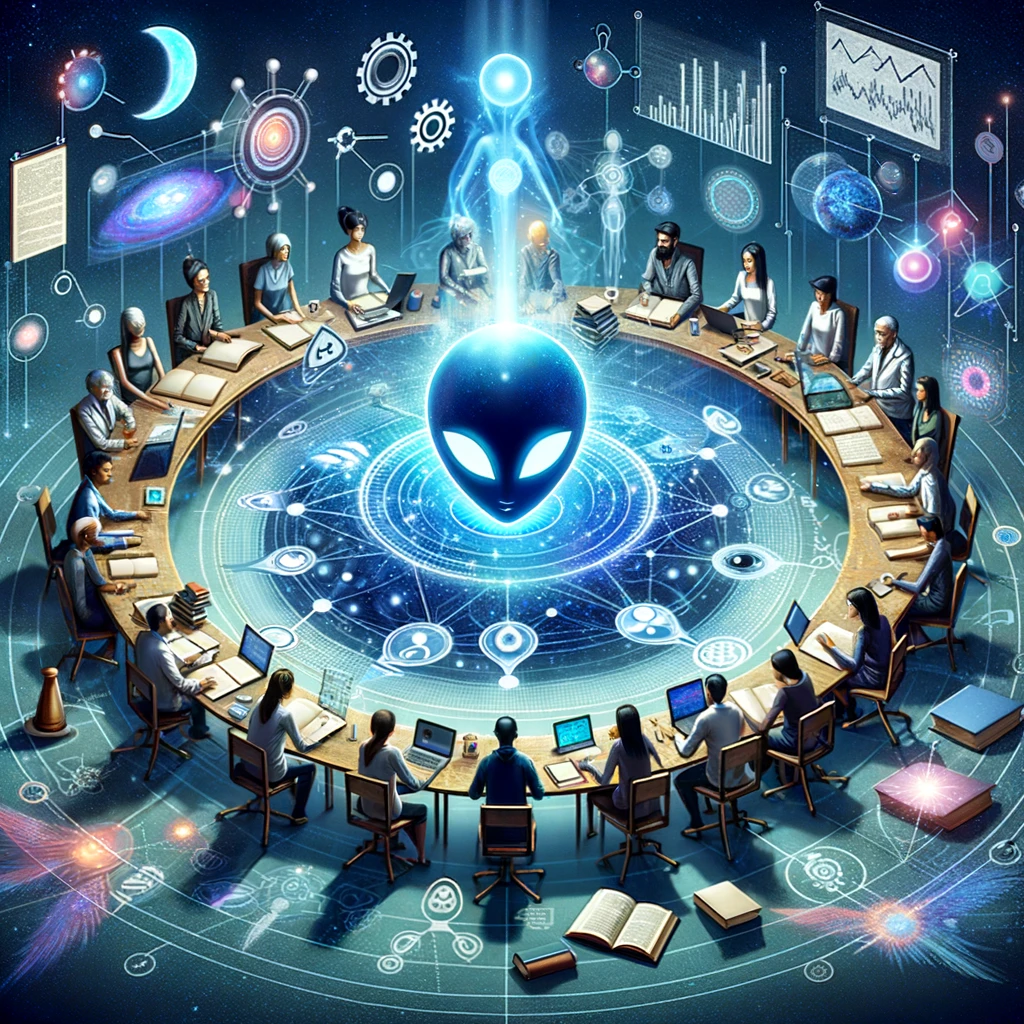David Grusch at the SOL Foundation Symposium

David Grusch’s presentation at the SOL Foundation Symposium, hosted by Nolan Laboratory and the Stanford School of Medicine in November 2023, highlighted an important dialogue on unidentified anomalous phenomena (UAP). The symposium aimed to foster academic legitimacy in the study of UAP by bringing together experts from various sectors to discuss the scientific, societal, and regulatory aspects of UAP information sharing.
Grusch emphasized the need for government transparency in UAP matters, advocating for a shift towards openness and truth. He suggested that such transparency could lead to a unified effort in understanding our place in the cosmos, potentially catalyzing technological advancements and a deeper comprehension of foundational sciences.
The SOL Foundation, as a research institute, focuses on funding scientific research related to UAP, aiming to prepare society for the implications of this phenomenon. Grusch’s call for increased transparency and disclosure aligns with the foundation’s mission, highlighting the significance of collective efforts in addressing UAP issues.
Throughout the symposium, various perspectives on UAP were explored, including the potential for non-human intelligences and the diverse origins of UAP phenomena. Grusch’s insights underscore the complexity of UAP studies and the importance of a multidisciplinary approach in unraveling these mysteries.
The event concluded with a Q&A session, where Grusch addressed inquiries about reverse engineering programs, his motivations for coming forward on UAP issues, and the future direction of UAP research. His responses reflected a commitment to integrity, service, and the pursuit of truth, reinforcing the symposium’s overarching theme of fostering a more informed and open discussion on UAP.
During the Q&A session, David Grusch faced inquiries about the extent of reverse engineering programs in the United States and other countries, particularly regarding the capability to operate extraterrestrial machines. He responded by highlighting the limitations on what he could publicly disclose, hinting at the integration of certain information into conventional U.S. programs without getting into specifics. When asked about his motivations for coming forward and exposing himself to potential risks, Grusch reflected on his decision, rooted in a commitment to integrity and service. He emphasized the importance of acting in a manner that would leave no room for future regrets, spurred by the growing public and congressional interest in UAPs.
Grusch also addressed questions about the diversity within the UAP phenomenon, acknowledging its complexity and the variety of behaviors, interactions, and potential origins. He expressed skepticism toward the simplistic attribution of all UAPs to extraterrestrial sources, advocating for a broader perspective that includes interdimensional or multidimensional explanations. The possibility of endorsing a UAP weapons test ban treaty to prevent the militarization of such technologies was brought up, to which Grusch responded positively, recognizing the potential benefits of such a policy in line with existing space treaties.
Concerns about the safety of UFO researchers and their families were raised, with Grusch advising adherence to legal and ethical research practices and utilizing official channels for reporting sensitive information. He speculated on the reasons behind the current surge in UAP interest, crediting the momentum generated since 2017 and the effectiveness of public engagement efforts. Grusch underscored the importance of independent research and open discussion, beyond government disclosures, as critical components of advancing the UAP discourse.
Looking ahead, Grusch shared his personal aspirations for the next five years, expressing a wish to return to a more private life while remaining involved in the UAP field in some capacity. He conveyed his willingness to contribute to future panels or government efforts, highlighting his ongoing dedication to exploring and understanding the UAP phenomenon.


